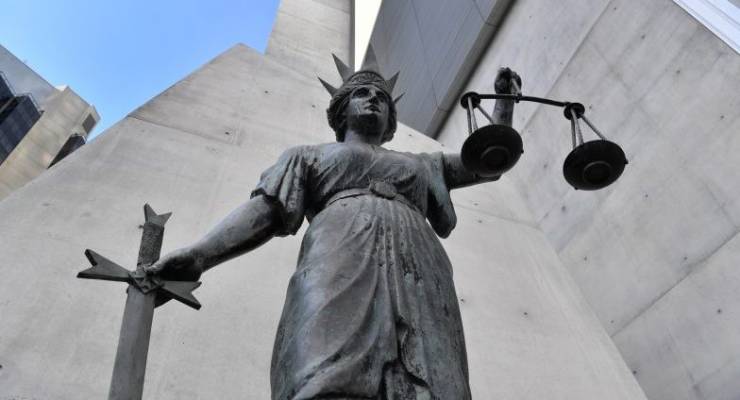
This month the NSW Attorney-General Mark Speakman passed landmark reforms to child sexual assault proceedings. He declared the changes could never take away a survivor’s pain, but they would help “deliver justice for survivors across NSW”.
But on Friday, the government announced a controversial change to the state’s Victims Services scheme. Lawyers and caseworkers claim this would harm all victims of violent crime, including child sexual assault victims.
These reforms, which the government first tried to rush through in April without consultation at the height of Australia’s COVID-19 response, essentially shift the burden of collecting the evidence needed to access counselling and compensation from the state and on to the victim of a crime.
The protests of hundreds of legal, health and survivor organisations and a letter to the United Nations have not deterred the government from introducing the changes from July 1 — this Wednesday.
Liz Snell, the law reform and policy coordinator for Women’s Legal Service NSW, says it is “concerning” the government sought to limit access to support for child sexual abuse victims-survivors while passing reforms to support their quest for justice.
“Every barrier put in a victim-survivor’s way will deter them from accessing the support they are entitled to and need,” she said.
In 2012 the NSW government commissioned a review of the victims compensation scheme and found it needed to be more accessible; victims-survivors needed equal opportunity to receive support with completing and submitting applications.
Since 2013, victims of crime wanting free counselling or compensation in NSW have submitted an online form outlining when they think the crime occurred, what the injury was, whether that is physical or psychological, and who might have the records to prove this. The state has then gathered the records (hospital, police, counselling) to support their claim.
But from Wednesday, these people will have to collect their own evidence and lodge the application within a strict 12-month timeframe.
There are many reasons why this process might be difficult for these people, Snell says. They may not have the language or literacy skills, or they may have a disability.
“Often victims-survivors of domestic and sexual violence, child abuse and child sexual abuse have experienced violence perpetrated by a number of people in a relationship of trust, including multiple ex-partners, family members or family friends over many years,” Snell said.
“Complex trauma impacts on memory [and so] victims-survivors of complex trauma may find it difficult to recall dates of acts of violence and the names of services to whom they reported violence.”
Their trauma might also be unnecessarily compounded by having to independently collect and read evidence of the acts of violence and injury they have suffered.
The changes were announced without consultation with the state’s Victims Advisory Board or Victims of Crime Interagency, just a week before their scheduled April 27 implementation date. But, on April 22, legal organisations wrote to Speakman asking him to halt the changes. The department did.
Then Community Legal Centres NSW provided an alternative proposal which enabled those who chose to collect their evidence on their own to do so, but also made sure Victims Services would continue to collect evidence for those who needed support. The commissioner allowed feedback until the end of May and so some 85 organisations and 435 individuals from across the state wrote an open letter calling for the reforms not to proceed.
Twenty organisations lodged an “urgent communication” with United Nations experts outlining how the changes would impact on people who have experienced complex trauma.
On Friday, the government announced the reforms would go ahead.
The Department of Communities and Justice secretary Michael Coutts-Trotter said he appreciates “the change is not broadly supported”.
“[The reforms] don’t adopt most of what we heard from the consultations that took place with the community legal assistance sector,” Coutts-Trotter told Crikey. “We will work with various voices in the sector to undertake a review of this change six months down the line and if it is creating the kind of problems people fear, we will be open about it.”
Coutts-Trotter says most people currently make applications “without having an advocate or support service”.
Snell said the sector felt “deeply disappointed” the government has proceeded with changes that prioritise efficiencies at the expense of a trauma-informed approach.
“Victims Services’ efficiency statistics — measuring the time from lodging an application to awarding victims support — might look great, but will it just be smoke and mirrors?” she said.
“What the statistics won’t capture are the numbers of victims who are being failed by the system.”
For help or information on domestic violence, visit 1800RESPECT or call them on 1800 737 732. The Men’s Referral Service is aimed at men who need help to stop violent or controlling behaviour, but it also supports victims and families. You can call on 1300 766 491.








The legal scales are already tipped in favour of the bad guys. This just puts even more emotional & physical pressure on traumatised victims.
Hmmm, Coutts-Trotter… why does that name ring a bell?
He doesn’t seem to have learned much from his own experiences.
Thanks Gina – a necessary article.
“The Department of Communities and Justice secretary Michael Coutts-Trotter said he appreciates “the change is not broadly supported”.
So 85 organisations & 435 individuals in an open letter asked that this not proceed – and the Minister and the Department happily admit they ignored them.
Whoever pays these officials should take action against this arrogance ….. oh wait, the taxpayer pays their salary.
Another case of arrogant ministers and top level public servants treating the public with contempt. Very sadly, this time, victims of abuse have further burdens placed upon them. Disgusting.